Ending Sounds Worksheets for Ages 6-8
6 filtered results
-
From - To
Welcome to our Ending Sounds Worksheets designed for children ages 6-8! This engaging collection supports early literacy by helping young learners master the concept of ending sounds in words. Each worksheet is filled with fun exercises, such as identifying and matching words, as well as coloring activities that enhance motivation and enjoyment. These worksheets are specifically crafted to strengthen phonemic awareness, a crucial step in reading development. Perfect for classroom use or at-home practice, our resources ensure kids build confidence and improve their language skills. Download your worksheets today and help your child decode the magic of words through interactive learning!
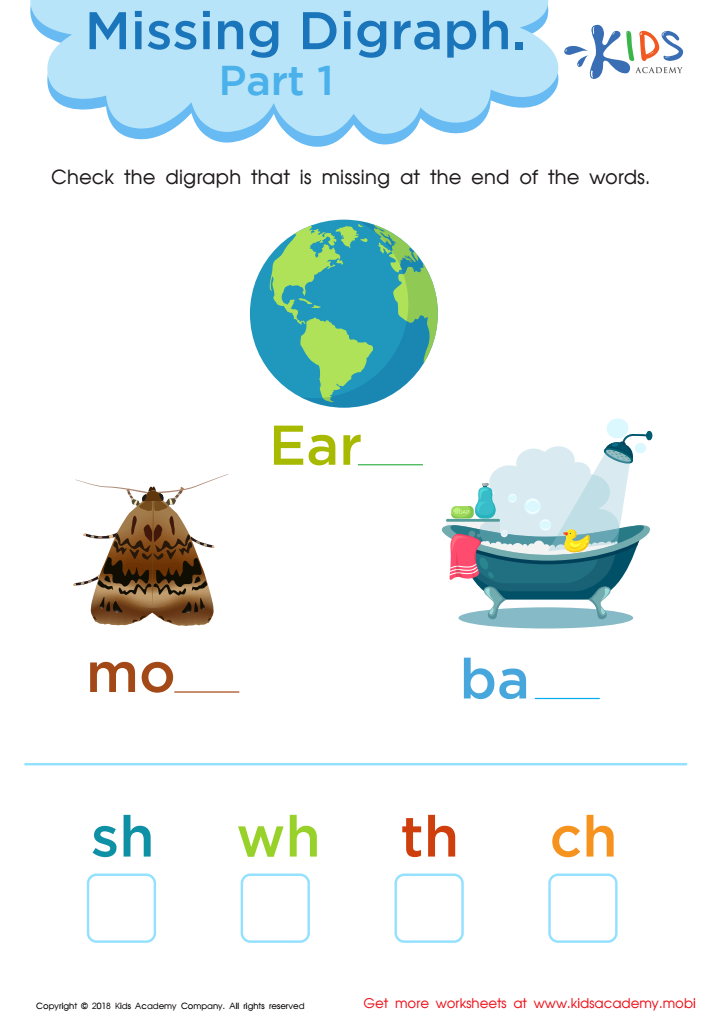

Missing Digraph: Part 1 Worksheet
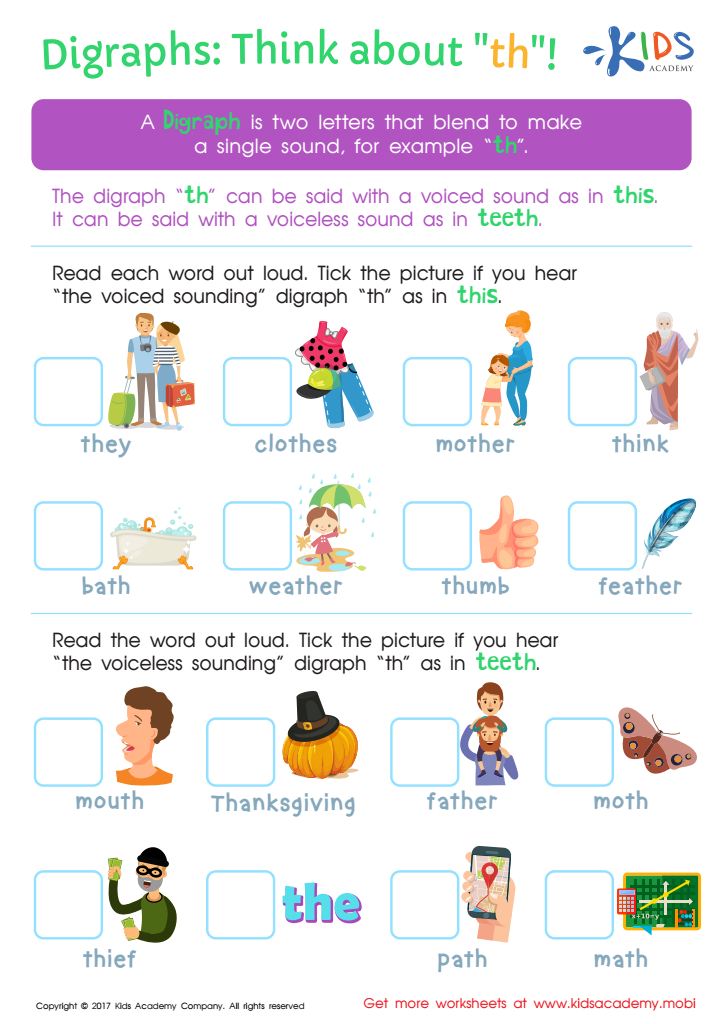

Digraphs: Think About "th" Worksheet
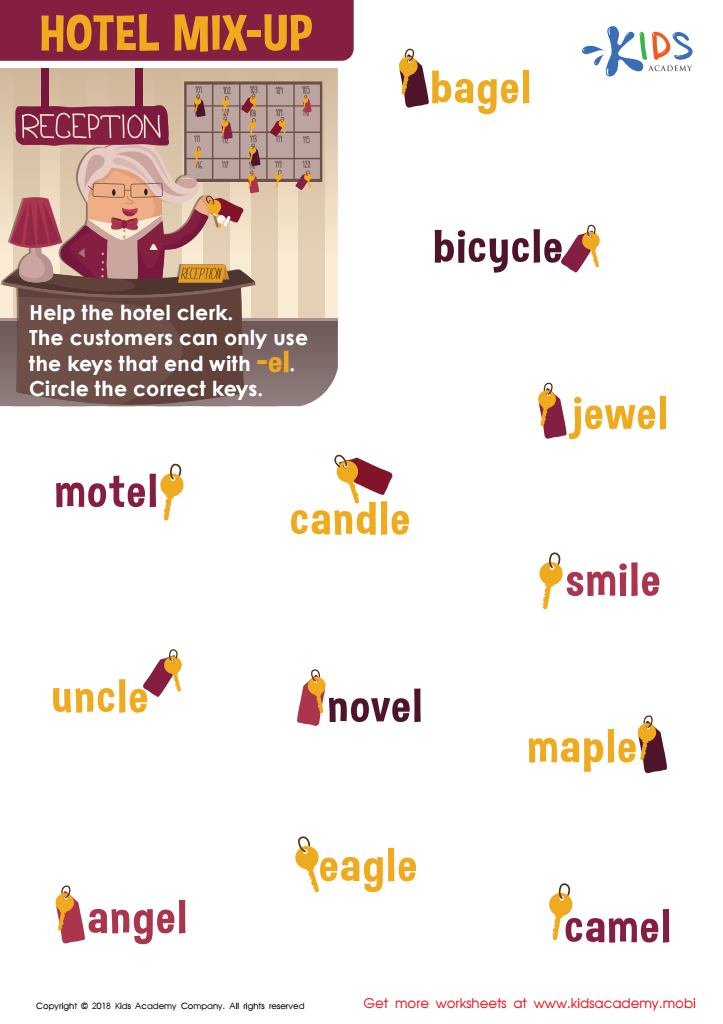

Hotel Mix-up Worksheet
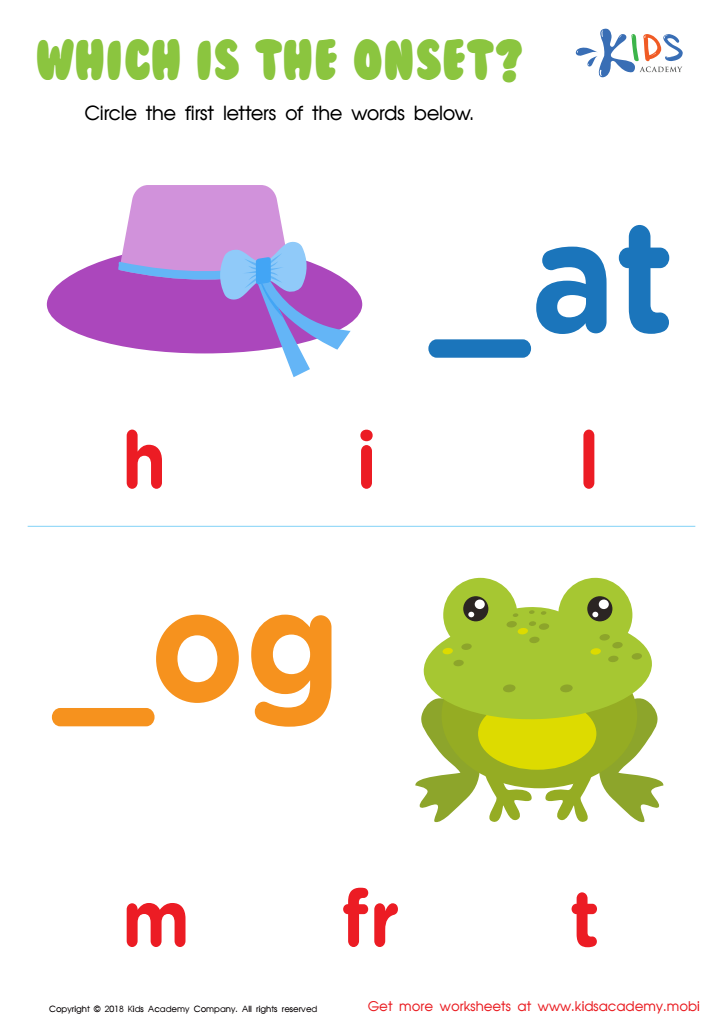

Which Is the Onset? Worksheet


Twin Onset Worksheet
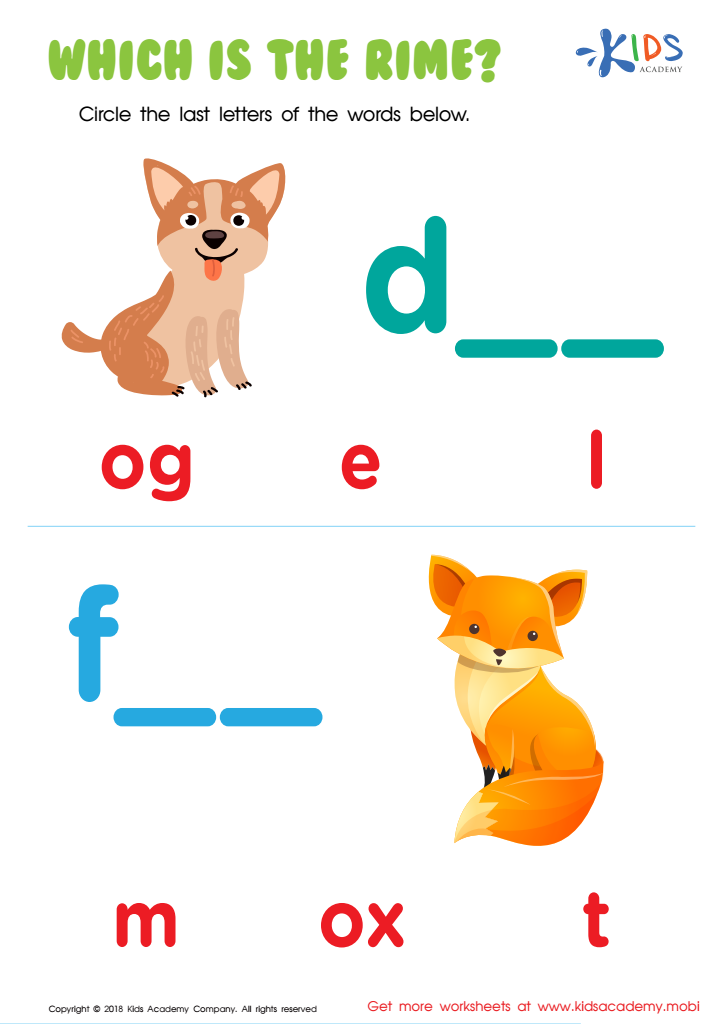

Which Is the Rime? Worksheet
Ending sounds are crucial elements of phonemic awareness, especially for children aged 6-8. As children begin to read and write, recognizing and manipulating these sounds enhances their literacy skills significantly. Understanding ending sounds helps children decode words accurately, which is essential for reading fluency. For example, words like "cat," "hat," and "bat" share the same ending sound, which aids children in predicting and understanding language patterns.
Additionally, focusing on ending sounds fosters spelling abilities. Many spelling rules hinge on understanding how words sound and are constructed. By distinguishing between ending sounds, children can improve their spelling skills, leading to better written expression.
Moreover, ending sounds play a vital role in rhyming and phonological awareness, which are foundational in developing early reading skills. When children engage in activities that emphasize ending sounds, such as rhyming games or phoneme segmentation exercises, they enhance their auditory discrimination—a key component in effective reading.
In summary, parents and teachers should prioritize ending sounds to support literacy development, strengthen spelling skills, and build a solid foundation for reading. These skills are not only academic necessities but also contribute to a child's confidence and enjoyment in learning.
 Assign to My Students
Assign to My Students














